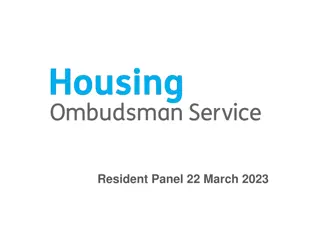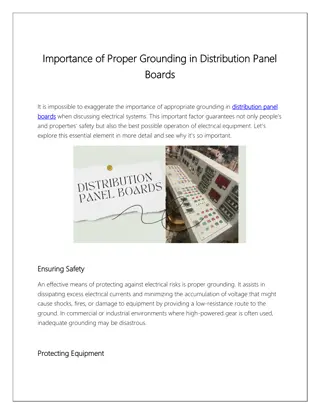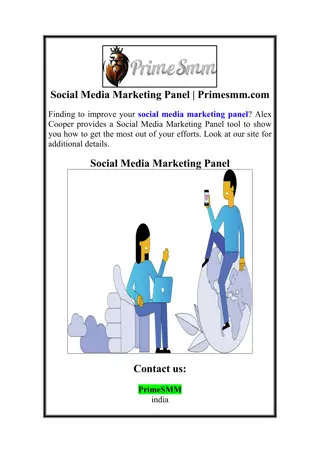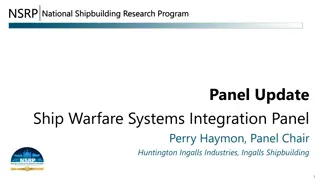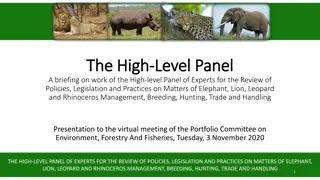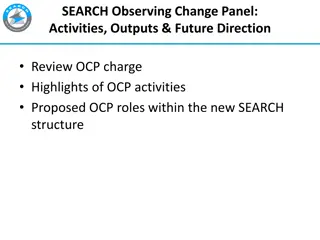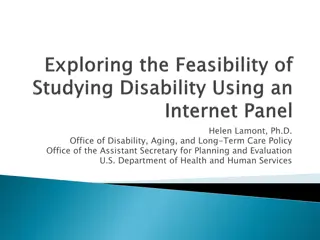Airline Passenger Incidents: A Disturbing Trend Unfolds
Incidents of unruly behavior on airplanes have been on the rise, prompting concerns for passenger safety. From fights over reclining seats to disturbing acts like groping and urinating, the incidents showcase a range of troubling behaviors. Factors like intoxication, frustration, and mental health issues have been identified as triggers for such disruptive behavior. The aviation industry faces challenges in addressing these issues to ensure a safe and comfortable travel experience for all passengers.
Download Presentation

Please find below an Image/Link to download the presentation.
The content on the website is provided AS IS for your information and personal use only. It may not be sold, licensed, or shared on other websites without obtaining consent from the author.If you encounter any issues during the download, it is possible that the publisher has removed the file from their server.
You are allowed to download the files provided on this website for personal or commercial use, subject to the condition that they are used lawfully. All files are the property of their respective owners.
The content on the website is provided AS IS for your information and personal use only. It may not be sold, licensed, or shared on other websites without obtaining consent from the author.
E N D
Presentation Transcript
Fight erupts on a plane after passengers tell mother to shut her crying baby up Dec. 19, 2014 3
Air-rage fight over reclining seat forces UA flight to return home, escorted by F-16 fighter jets June 1st, 2011 4
Denver flight diverted over knee defender fight. August 26, 2014 5
The knee defender (Cost: US $ 21,95 retail price). 6
Passengers were given a rocky ride from Toronto to Atlanta when a passenger allegedly used his headphones to try to strangle an Ottawa soccer player sitting in front of him. April 10, 2015 7
Man jailed for urinating on another passenger on plane. April 16, 2009 8
AC passenger alleges seat mate groped her as she slept. April 8, 2015 9
Figures In the period 2007-2013 there were over 28,000 reported cases of unruly passenger incidents on board aircraft in flight. These incidents include violence against crew and other passengers, harassment and failure to follow safety instructions. Source: http://www.iata.org/policy/pages/tokyo-convention.aspx 10
Incident Motivators and Triggers A number of possible causes for unruly/or disruptive passenger behavior in flight have been identified: Intoxication (e.g., through alcohol, narcotics or medications). It should be noted that in many cases the ingestion and consequent influence of alcohol, narcotics and/or medication starts before the passenger boarded the aircraft; Irritation with other passengers' actions on-board (e.g., kicking in seats, sharing the armrest) or hygiene; Frustration linked with passenger s journey; long haul flights, inability to smoke or use personal/portable electronic devices (e.g. mobile phones), dissatisfaction with customer service and service delivery (too slow, too long, meals, inoperative equipment: IFE, lavatories, chair tables, seats; Mental breakdowns / episodes e.g., acute anxiety, panic disorder or phobias; Mental conditions e.g. psychosis, dementia or other mental health related disorders; Personality differences amongst passengers or between crew members and passengers; Emotional triggers originating outside the flight (e.g. loss of a job) Lack of medication or alcohol withdrawal symptoms. Source: IATA Guidance on Unruly Passenger Prevention and Management (3.4.1). 11
MONTREAL Convention, Article 17. 13
Montreal Convention, Art. 17 To establish air carrier liability under Art 17 of the MC99, all of the following requirements must be satisfied: Damage sustained Resulting from death of bodily injury Caused by an accident Occurring on board the aircraft, or Occurring during the operations of embarking or disembarking If any of these requirements is lacking, there is no liability of the air carrier. 14
EL AL ISRAEL AIRLINES v. TSENG. 525 U.S. 155 (1999) The Convention preempts local law where and when the Convention applies. Thus, if the Convention is not applicable to the transportation, the passenger is free to pursue the claim under local law. The Supreme Court in Tseng made clear that: 1) The convention provides the exclusive cause of action for damages caused by an Article 17 accident. 2) If Article 17 does not allow for recovery, there can be no recovery. 3) Where the Convention liability rules apply, they preempt and are exclusive of all other state and federal laws. 15
Air France v. Saks. 470 U.S. 392 (1985) Saks (1985) an Article 17 accident is "an unexpected or unusual event or happening that is external to the passenger". However, the "accident" which causes the passenger injury or death need not to be the sole causal factor. The passenger or claimant need only (to) prove that some link in the chain [of causation] was an unusual or unexpected event external to the passenger. 16
Stone v. Continental Airlines, Inc., 905 F. Supp. 823, 827 (D. Hawaii 1995). Assault on board: The fundamental premise in authorizing carrier liability under the Warsaw Convention is to include such risks that are characteristic of air travel (Price, 1992). Here, Plaintiff s claims would expand the scope of liability under the Article 17 of the Warsaw Convention. Plaintiff s misfortune allegedly occurred on the airplane, but was not an accident derived from air travel. Potter v. Delta Airlines, Inc., 98 F.3d 881, 883-884 (5th Cir. 1996). Dispute over seat position: Finding no accident where injury in passenger dispute over seat position took place without involvement of airline personnel. 17
WALLACE v. KOREAN AIR. United States Court of Appeals, Second Circuit. Docket No. 99-7597. Decided: June 6, 2000 In a darkened pane, a male passenger sitting next to Ms. Wallace unbuckled her belt, unzipped and unbuttoned her jean shorts, and placed his hands into her underpants to fondle her. The Second Circuit concluded this act of sexual predation was an Article 17 accident, whether or not an accident must be an incident of air travel. The reasoning: 1. The characteristics of air travel increased Ms. Wallace s vulnerability to the assault. 2. She was cramped into a confined space beside two men she did not know, one of whom turned out to be a sexual predator, left unsupervised in the dark. 3. Not a single flight attendant noticed the problem. 18
Lahey v. Singapore Airlines, Ltd., 115 F. Supp 2d 464 (S.D.N.Y. 2000) A fight over a seat s reclining position that included: A punch on the face of Ms. Lahey. A food tray thrown at her. Ms. Lahey and her daughter covered with food. A struck on Ms. Lahey s head with a plastic tray that caused a laceration on her scalp. The crew was actively involved in trying to solve the problem. 19
Lahey v. Singapore Airlines, Ltd., 115 F. Supp 2d 464 (S.D.N.Y. 2000) Reasoning: 1. The Supreme Court in Saks provided a definition of accident that should be flexibly applied after assessment of all the circumstances surrounding a passenger s injuries, and recognized that the misconduct of a fellow passenger could be an accident . 2. The assault in the case Wallace was a risk of air travel, and Ms. Lahey s position is indistinguishable from that of Ms. Wallace. 3. The actions of the crew are not relevant to the determination of whether the assault was an accident because it is clear that nothing in the term accident suggests a requirement of culpable conduct on the part of the airline crew. 20
Langadinos v. American Airlines, Inc. 199 F.3d 68 (1st Cir. 2000). Facts: The alleged over-serving of alcohol by the flight attendant to a passenger whose previous behavior had been erratic and aggressive purportedly resulted into his sexually assaulting on another passenger. Findings: 1. The Supreme Court s definition of accident (a requirement that must be flexiblyapplied ) is broad enough to permit recovery for torts committed by fellow passengers. 2. Of course, not every tort committed by a fellow passenger is a Warsaw accident. 3. Where the airline personnel play no causal role in the commission of the tort, courts have found no Warsaw accident. 4. On the flip side, courts have found Warsaw accidents where airline personnel play a causal role in a passenger-on-passenger tort. 21
Tsevas v. Delta Airlines, Inc., United States District Court, N.D. Illinois, Eastern Division. No. 97 C 0320. (N.D. Ill. Nov 24, 1997). Facts: Alcohol was served to an already intoxicated passenger. As a result, he made numerous unwanted and unsolicited physical and verbal advances of a romantic and sexual nature toward Ms. Tsevas, including grabbing her, fondling her, attempting to kiss her and biting her lip. Numerous requests by Ms. Tsevas to be moved to another location on the aircraft were refused by the flight attendants. Findings: 1. The injuries caused to Ms. Tsevas resulted from a combination of unexpected or unusual events external to her. 2. The court in Stone found that an incident where a passenger is injured in a fight with another passenger bears no relation to the defendants operation of the aircraft. 3. The facts of Stone, however, are distinguishable from the present case: while a fight between passengers may not have relation to the operation of the aircraft, service from flight attendants (in this case: serving alcohol to an intoxicated passenger), on the other hand, is characteristic of air travel and does have such a relation with the operation of the aircraft . 4. Flight attendants refusal to intervene when requested is an unexpected event external to the Plaintiff which was beyond the usual and normal operation of the aircraft. 22
Must the "accident" bear some relation to the operation of the aircraft? As a result of this language in the Saks opinion, the lower courts have been in disagreement as to whether the "accident" must bear some relation to the operation of the aircraft, such as aircraft operation abnormality or malfunction or crew member involvement in the happening. a) No "accident" where the event or happening bears no relation to the operation of the aircraft: Gotz v. Delta Airlines, Inc., 12 F.Supp. 2d 199 (D. Mass. 1998). b) The event of happening need not relate to the operation of the aircraft to qualify as an Art. 17 "accident": Ramos v. Transmeridian Airlines, Inc., 383 F. Supp. 2d 137 (D.P.R. 2005). 23
Must an Art. 17 "accident" arise from risks that are characteristic of air travel? The Courts are not in agreement as to whether the "accident" must arise from risks inherent in air travel. a) The "accident"/passenger injury must bear some relation to the carrier's operation of the aircraft: Stone v. Continental Airlines, Inc., 905 F. Supp. 823, 827 (D. Hawaii 1995); Levy v. American Airlines, Inc., 1993 WL 205857 (S.D.N.Y. 1993). b) Events not related to the aircraft operation can be considered Article 17 "accident": Gezzi v. British Airways, 991 F.2d 603 (9th Cir. 1993); Barrat v. Trinidad & Tobago Airways, Corp.,, 1990 WL 127590 (E.D.N.Y. 1990). 24
What is the relevance of the actions of the air carrier personnel? Where air carrier personnel play no causal role in the commission of the tort/assault, there is no compensable Article 17 "accident (Potter v. Delta Airlines, Inc., 98 F.3d 881, 883-884 (5th Cir. 1996; One passenger punching another, without crew intervention: Stone v. Continental Airlines, Inc., 905 F. Supp. 823, 827 (D. Hawaii 1995). Courts have found Warsaw accidents where airline personnel play a causal role in a passenger-on-passenger tort (Langadinos v. American Airlines, Inc. 199 F.3d 68 (1st Cir. 2000). The actions of the crew are not relevant to the determination of whether the assault was an "accident" (Lahey v. Singapore Airlines, Ltd., 115 F. Supp 2d 464 (S.D.N.Y. 2000). Service from flight attendants is characteristic of air travel and does have such a relation with the operation of the aircraft , and flight attendants refusal to intervene when requested is an unexpected event external to the Plaintiff which was beyond the usual and normal operation of the aircraft (Tsevas v. Delta Airlines, Inc., United States District Court, N.D. Illinois, Eastern Division. No. 97 C 0320. (N.D. Ill. Nov 24, 1997). Courts have found that an accident can be caused by non-action of the personnel (Olympic Airways v. Rubina Husain, 540 U.S. 644, 2004). On the contrary: Povey v. Qantas Airways Ltd. (High Court of Australia [2005] HCA 33: 23 June 2005; In re Deep Vein Thrombosis and Air Travel Group Litigation House of Lords, U.K., [2005] UKHL 72, [2006] 1 A.C. (U.K.). 25
THANK YOU VERY MUCH! Norberto E. Luongo. nluongo@icao.int 27




